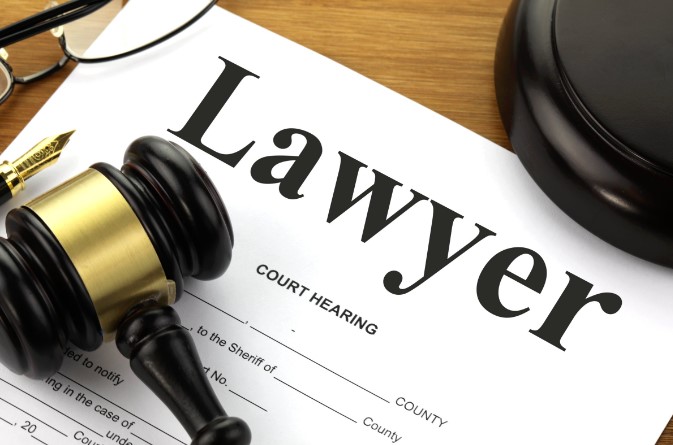Tips from Lawyer: Essentials-2025
Grasping the Basics of Law
The journey into understanding law begins with a fundamental grasp of its core concepts and principles. Laws serve as the backbone of our society, maintaining order, protecting individual rights, and ensuring justice is served. A crucial starting point is to recognize the distinction between different types of laws and their applications.
Civil law and criminal law represent two primary categories within the legal system. Civil law typically deals with disputes between private parties, which can include individuals, organizations, or corporations. These disputes often involve matters such as contracts, property, and family issues. On the other hand, criminal law pertains to offenses against the state or public order, where the government prosecutes individuals or entities accused of committing crimes like theft, assault, or fraud.

Another essential concept to understand is the rule of law, which asserts that everyone, including government officials, is subject to the law. This principle ensures fairness and equality within the legal system, preventing arbitrary use of power. Additionally, being familiar with legal terminology can be immensely beneficial. Terms such as plaintiff, defendant, litigation, and jurisdiction are commonly used in legal contexts and understanding them can aid in comprehending legal processes.
Jurisdiction is a vital concept that refers to a court’s authority to hear and decide cases. It can be based on geographic location, the nature of the legal matter, or the parties involved. Knowing which court has jurisdiction over your case is crucial in seeking legal redress.
Moreover, legal precedent, established by previous court rulings, plays a significant role in shaping current laws and their interpretations. Courts often rely on past decisions to ensure consistency and predictability in the legal system. Understanding how precedents influence legal outcomes can help you anticipate the possible direction of your case.
Lastly, recognizing the importance of due process is fundamental. Due process guarantees fair treatment through the normal judicial system, especially as a citizen’s entitlement. It encompasses rights such as receiving notice of legal actions against you and having an opportunity to be heard in court.
Equipping yourself with these basic legal concepts can provide a solid foundation for navigating more complex legal issues as they arise.
Understanding Contracts and Agreements
Contracts and agreements play a crucial role in many aspects of life, from business transactions to personal commitments. For a contract to be valid, it must contain four key elements: offer, acceptance, consideration, and mutual intent to be bound. Both parties must clearly understand and agree to the terms, which should be specific and unambiguous to prevent potential disputes.
An offer is a clear proposal made by one party to another, signifying a willingness to enter into a contract on certain terms. Acceptance is the unqualified agreement to those terms, signifying that both parties are on the same page. Consideration involves something of value exchanged between the parties, whether it’s money, services, or goods. Mutual intent to be bound means that both parties intend for the agreement to be legally enforceable.
One common mistake to avoid is relying on verbal agreements, which can be difficult to enforce. Written contracts are preferable because they provide a clear record of the terms agreed upon. Additionally, vague terms can lead to misunderstandings. It’s important to ensure that every detail is clearly outlined, including payment terms, deadlines, and responsibilities.
Small print or fine print should never be overlooked, as it can contain crucial information that impacts the agreement. Always take the time to read and understand every clause before signing. If there’s any part of the contract that you find unclear, don’t hesitate to ask for clarification or seek legal advice.
In some cases, contracts may include terms that allow for amendments or modifications. It’s important to understand how these changes can be made and under what conditions. Both parties should agree to any modifications in writing to avoid future disputes.
Breach of contract occurs when one party fails to fulfill their obligations under the agreement. The consequences of a breach can vary, from financial compensation to specific performance of the contract terms. Understanding your rights and remedies in the event of a breach can help you protect your interests.
By paying attention to these details, you can create strong, enforceable contracts that minimize the risk of disputes and help ensure smooth transactions.
Understanding Employment Law
Employment law governs the dynamics between employers and employees, ensuring that both parties understand their rights and obligations. Employees are entitled to a workplace that meets safety standards, offers fair compensation, and is free from discriminatory practices. Discrimination can encompass a wide range of unfair treatments based on race, gender, age, religion, or disability, and both federal and state laws provide strong protections against such practices.
Employers, in turn, must adhere to a myriad of regulations designed to uphold these rights. This includes maintaining comprehensive policies on workplace conduct, providing necessary training, and ensuring all employees are aware of their rights. Clear and well-communicated policies can help prevent misunderstandings and foster a positive working environment.
Wage and hour laws, such as those stipulated by the Fair Labor Standards Act (FLSA), dictate minimum wage, overtime pay eligibility, and record-keeping requirements. Employees should be aware of their entitlement to fair wages and overtime pay for hours worked beyond the standard 40-hour workweek, unless they fall into an exempt category.
Safety in the workplace is another critical aspect of employment law. The Occupational Safety and Health Administration (OSHA) sets and enforces standards to ensure that working conditions are safe and healthful. Employees have the right to report unsafe conditions without fear of retaliation, and employers are required to address these concerns promptly.
Another significant area is the handling of grievances and disputes. Open communication channels between employers and employees are vital for resolving issues effectively. Employers should have a structured process for addressing complaints and should act promptly to investigate and resolve any allegations of misconduct, harassment, or discrimination.
Family and Medical Leave Act (FMLA) protections allow eligible employees to take unpaid, job-protected leave for specified family and medical reasons, including the birth or adoption of a child, personal or family illness, or military leave. Understanding these rights can help employees balance work and personal responsibilities without fear of losing their job.
Lastly, in the event of a termination or layoff, employees should be informed about their rights regarding final paychecks, severance agreements, and unemployment benefits. Knowing these aspects of employment law can help both employers and employees navigate the workplace more effectively, ensuring a fair and respectful environment.
Safeguarding Intellectual Property
Intellectual property (IP) represents the creations of your mind, such as inventions, artistic works, and distinctive symbols. Protecting your IP is crucial for maintaining control over these valuable assets and benefiting financially from them. There are several categories of IP to be aware of: patents, trademarks, copyrights, and trade secrets.
Patents grant inventors exclusive rights to their inventions for a specified period, typically 20 years. This exclusivity allows the inventor to prevent others from making, using, or selling the invention without permission. To obtain a patent, you must file an application with the United States Patent and Trademark Office (USPTO) and meet specific requirements, including demonstrating that the invention is novel, non-obvious, and useful.
Trademarks protect brand names, logos, slogans, and other identifiers that distinguish goods and services in the marketplace. Registering a trademark with the USPTO provides legal recognition and enforcement capabilities, helping to prevent others from using similar marks that could confuse consumers. Trademarks can last indefinitely, as long as they are in continuous use and properly maintained.
Copyrights cover original works of authorship, including literary, musical, and artistic works. Copyright protection is automatic upon the creation of the work and gives the creator exclusive rights to reproduce, distribute, perform, display, and create derivative works based on the original. While registration with the U.S. Copyright Office is not required, it provides additional legal benefits, such as the ability to file a lawsuit for infringement and claim statutory damages.
Trade secrets consist of confidential business information, such as formulas, processes, or methods, that provide a competitive edge. Unlike patents, trade secrets are protected without registration, as long as the information remains secret and reasonable efforts are made to maintain its confidentiality. Legal remedies are available if trade secrets are unlawfully disclosed or used by others.
Protecting your IP requires ongoing vigilance and legal action when necessary. Monitoring the marketplace for potential infringements and taking prompt steps to enforce your rights can help safeguard your intellectual property. Legal expertise is often invaluable in navigating the complexities of IP protection and ensuring that your rights are upheld.
Fundamentals of Family Law
Family law deals with legal matters concerning familial relationships, often involving complex emotional dynamics. Key areas within this field include marriage, divorce, and child custody. Marriage laws establish the legal framework for the union between individuals, including age requirements, consent, and licensing procedures. Understanding these regulations is vital for anyone planning to marry, as they vary from state to state.
Divorce laws outline the procedures for legally ending a marriage and address issues like property division, alimony, and child support. The process often begins with the filing of a petition and may involve negotiations or court proceedings to resolve disputes. Each state has its own grounds for divorce, which can be fault-based or no-fault, affecting the division of assets and responsibilities.
Child custody laws determine the legal rights and obligations of parents regarding their children. These laws prioritize the best interests of the child and can involve arrangements for physical custody, legal custody, and visitation rights. Courts consider factors such as the child’s age, emotional needs, and the parents’ ability to provide care. Joint custody is often encouraged to ensure that both parents remain actively involved in the child’s life.

Another important aspect of family law is child support, which mandates financial contributions from the non-custodial parent to support the child’s upbringing. Child support calculations are generally based on both parents’ incomes and the child’s needs, ensuring that the child maintains a standard of living similar to that before the separation.
In addition to these core areas, family law also encompasses adoption, guardianship, and domestic violence issues. Adoption laws regulate the process of legally bringing a child into a family, ensuring the child’s welfare and the adoptive parents’ suitability. Guardianship laws appoint a responsible adult to care for a child or incapacitated person when the parents are unable to do so.
Domestic violence laws provide protections for individuals facing abuse within the family setting. Restraining orders and legal actions can be taken to ensure the safety and well-being of victims.
Understanding these aspects of family law can help individuals navigate their rights and responsibilities, ensuring that they make informed decisions during challenging times.
Demystifying Real Estate Law
Real estate law encompasses the legal aspects of buying, selling, and renting property. One of the fundamental steps in a property transaction is ensuring that all agreements are documented in writing. This documentation should comply with both state and federal regulations to protect the interests of all parties involved.
When purchasing property, it’s essential to conduct thorough due diligence, which includes title searches, property inspections, and reviewing any existing liens or encumbrances. This helps ensure that there are no hidden issues that could affect your ownership rights. Additionally, understanding the terms of the mortgage or financing agreement is crucial, as this will outline your repayment obligations and any potential penalties.
Selling property involves similar precautions, including providing full disclosure of the property’s condition and any known defects. Both buyers and sellers should be aware of the closing process, which involves finalizing the transaction through a series of legal and financial steps, including the transfer of title and payment of closing costs.
For those involved in rental agreements, both tenants and landlords have specific rights and responsibilities. Tenants are entitled to a habitable living environment, free from significant health and safety hazards. They should also understand the terms of their lease agreement, including rent payment schedules, duration of tenancy, and conditions for security deposit refunds.
Landlords, on the other hand, have the right to receive rent and ensure the property is maintained. They must also comply with state and local housing laws, which may include providing notice before entering the rental unit and making necessary repairs promptly.
By understanding these key aspects of real estate law, you can navigate property transactions and rental agreements more effectively, minimizing the risk of legal issues and ensuring that your rights are protected.



